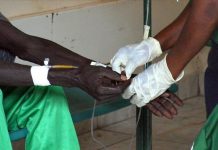Author: CHRISTINA MSEJA
AfricaPress-Tanzania: FAILURE by the public to lay much emphasis on balanced diet has been cited as one of the major factors that affect women of reproductive age.
This is due to the fact that nutrition is disregarded in some communities, thus preventing women to eat balanced diet.
The Tanzania Food and Nutrition Centre (TFNC) Senior Nutritional Researcher, Mr Walbert Mgeni, said women of reproductive age have been finding themselves in health problems due to factors associated with poor diet.
According to the nutritionist, unless communities change their attitudes, cases of anaemia, malnutrition and other infections will continue to haunt women and other age groups.
According to the World Health Organisation (WHO), Women of reproductive age range from 15 to 49 years.
Nutritionists point out that women of reproductive age, especially expectant mothers, must get nutrition needs and attend maternal and child health clinics as well as adhere to the hygiene.
TFNC Senior Nutritional Research Officer, Mr Walbert Mgeni, says good nutrition for women of reproductive age helps them to strengthen their immune system against diseases and preventing anaemia.
According to the survey, malaria contributes to anaemia among women of reproductive age, especially expectant women, prompting heath experts to advise them to use mosquito nets as safeguards.
“To address the problem of anaemia that contributes to maternal mortality, the government provides iron and folic acid supplements to all pregnant women to ensure they have enough blood. Tablets will continue to be supplied within three months after giving birth,” he explained.
About 54 per cent of pregnant women in the country use mosquito nets.
Many women of reproductive age, especially pregnant and breastfed mothers, faced a significant increase in demand for nutritious food.
He said a woman who is preparing to get pregnant needs a complete diet based on five food groups as it helps the mother to get all the energy and nutrients needed for her and the baby growing in her womb.
Mr Mgeni added that women of reproductive age face malnutrition during pregnancy which increases the risk of giving birth to babies with large heads.
Mr Mgeni noted women at reproductive age faced social norms and customs in the society, which affects their nutritional status.
He said the challenge is the role of women in the society where she uses a lot of time in productive and domestic activities, including child and family care in general.
“This causes women of reproductive age to face lack of adequate time, resulting in failure to fully implement behaviours that improve their nutrition and thus develop malnutrition,” he said.







